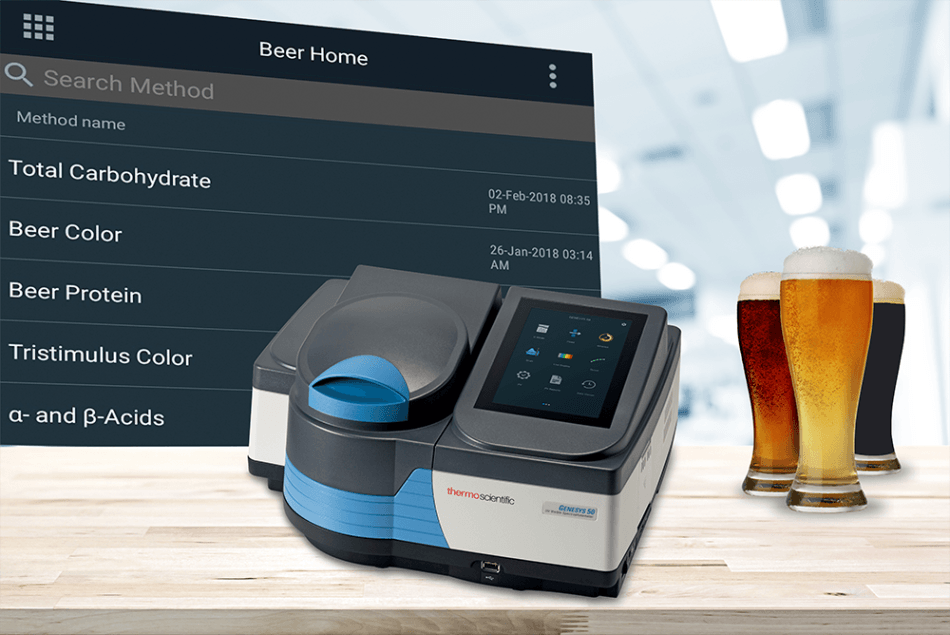Craft beer brewers now have access to an economical solution designed to streamline quality assurance testing and achieve batch-to-batch consistency with the new Thermo Scientific BeerCraft software package for the Thermo Scientific GENESYS 50 and GENESYS 150 UV-Vis Spectrophotometers. The software will be showcased during the 2019 Pittsburgh Conference & Exposition (Pittcon 2019), being held March 17-21, at Booth #2632 at the Pennsylvania Conference Center, Philadelphia.
 Thermo Scientific BeerCraft Software
Thermo Scientific BeerCraft Software
Together, Thermo Scientific BeerCraft software and GENESYS UV-Vis Spectrophotometers are an affordable, easy-to-use system that provides the American Society of Brewing chemist-quality testing methods for more than 20 beer attributes, including color, bitterness, protein, sugar, carbohydrate, polyphenol levels and more. Unlike other solutions, BeerCraft software is configurable for use with reagents and chemistries from many vendors.
“Batch-to-batch consistency is critically important to the craft brewing industry, so we’ve developed quality assurance and quality control analytical capabilities for the craft brewing process,” said Karnel Walker, director of UV-Vis and NMR spectroscopy products at Thermo Fisher Scientific. “Our new BeerCraft software seamlessly integrates a library of beer-specific testing methods with the highly configurable and user-friendly GENESYS UV-Vis spectrophotometers, reducing the dependency on sensory testing methods such as visual, taste or smell inspection.”
Launched in early 2018, the GENESY UV-Vis Spectrophotometer is an affordable and easy-to-use solution for the quality assurance/quality control market, featuring a 7-inch high-resolution touchscreen interface, versatile onboard software and Wi-Fi capabilities. The BeerCraft specialized software extends the GENESYS product offering to users specifically in the food and beverage industry.
Thermo Fisher is exhibiting this new offering at Pittcon in Philadelphia, Pennsylvania, March 17-21, 2019, and again at the Craft Brewers Conference in Denver, Colorado, April 8-11, 2019.